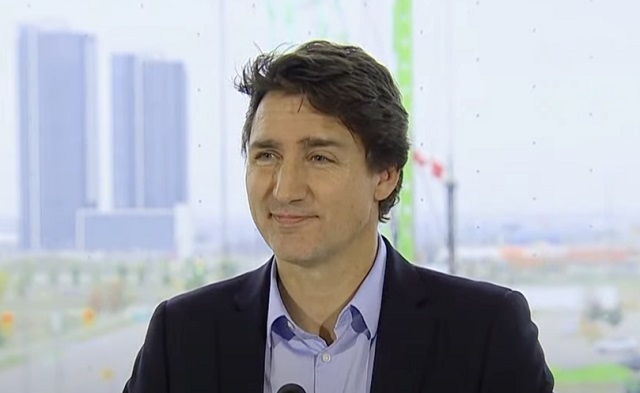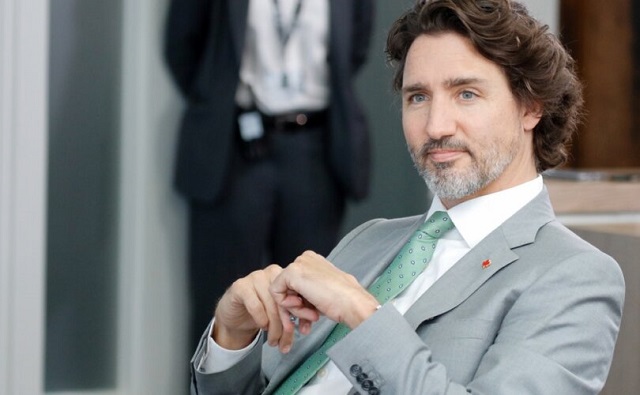Alberta
Complete overhaul of rural policing in Alberta! Province adding 500 RCMP officers and support staff

Justice Minister and Solicitor General Doug Schweitzer shakes hands with an RCMP officer in Leduc County.
Historic investment in rural policing
Alberta is adding more than 500 RCMP positions in rural communities across the province and fostering new public safety partnership with municipalities.
The Government of Alberta’s new police funding model will inject more than $286 million over five years into frontline law enforcement for these additional RCMP officer and civilian positions. This new cost-sharing partnership will see small and rural communities begin to pay a portion of frontline policing costs, bringing them into line with larger communities and cities.
Under the cost-sharing terms in the Provincial Police Service Agreement (PPSA), Alberta pays 70 per cent of policing costs and the federal government covers the remaining 30 per cent. With the additional investment from municipalities, the federal share of the PPSA will increase as well. This partnership will constitute a total increase in rural police funding of more than $286 million over five years with every dollar of the additional funds invested in frontline policing.
The province is creating a new Alberta Police Advisory Board, where municipal leadership will have a seat at the table, working in collaboration with law enforcement to ensure local needs are heard and implemented. This new governance mechanism will ensure that policing is in line with the priorities of those they are protecting.
“Ensuring Albertans are safe, secure, and protected in their communities goes to the heart of who we are as a government. We want to ensure we fund law enforcement in an equitable and sustainable way that will ensure we have more police in our communities. With this new police funding model, we are making the single largest investment in rural policing since the March West and delivering on our promise to enhance public safety.”
“Crime affects many in my own rural community, and it is an issue that is incredibly personal to me. All Albertans deserve to feel safe in their own homes and confident that they will not fall victim to violent or property crime. This new police funding model will provide increased security and certainty for rural Albertans, and value for taxpayer dollars.”
“The Government of Alberta has made an unprecedented investment in their police service, and we are ready to deliver on that commitment. The funding model announced will allow the Alberta RCMP to put additional resources where they are needed most immediately – on the frontline in your detachments, protecting your backyards and your farmyards, pushing back crime in a sophisticated and focused manner.”
“Rural Municipalities of Alberta appreciates the Government of Alberta’s willingness to consult on this issue, and as a result of input from RMA and rural municipalities, implement a phased-in police-costing model. Rural crime has been an ongoing issue in Alberta in recent years, and rural municipalities recognize they need to share in the costs of the solutions to support safer communities.”
“AUMA has long advocated for a more equitable police-funding model to address RCMP vacancies and the rising costs of policing while improving community safety. We’re pleased to see action on this critical priority by the provincial government, as safe and healthy municipalities build strong communities and a stronger Alberta. Further consultation is critical to supporting local governments with the policing resources they need, and we look forward to actively contributing to the Alberta Police Advisory Board.”
This partnership places priority on adding uniformed patrol officers in rural RCMP detachments, increasing the total number from under 1,600 to about 1,900, and will also add members to specialized RCMP units that dismantle organized crime and drug trafficking and investigate auto and scrap metal theft.
Furthermore, the new civilian positions will assist with administrative tasks and investigative support to increase response times and help ensure officers have the support network they need to protect Albertans by spending more time on roads and in communities.
Quick facts
- Small and rural communities, with some exceptions, will begin contributing a portion of their frontline policing costs in 2020. To give communities time to adjust, the new funding model is being phased in: communities will contribute 10 per cent of policing costs in 2020, followed by 15 per cent in 2021, 20 per cent in 2022 and 30 per cent in 2023.
- Policing costs for each community will be determined by municipal tax base (as measured by equalized assessment) and population to calculate a base cost. Communities will also be eligible for other subsidies that consider other factors that may affect local policing costs.
- Current annual PPSA amount, 2019-20 (prior to new police funding partnership): $374.8 million
- Government of Alberta contribution: $262.4 million
- Government of Canada contribution: $112.4 million
- Additional investments to current PPSA to April 1, 2024 will be: $286,605,021
- Government of Alberta contribution: $200,623,515
- Government of Canada contribution: $85,981,506
- All additional investments will go towards more frontline resources.
Alberta
Danielle Smith warns arsonists who start wildfires in Alberta that they will be held accountable

From LifeSiteNews
The Alberta government has created an ad campaign highlighting the fact that most fires are caused by humans and not ‘climate change,’ as many left-leaning politicians claim.
In preparation for the so-called wildfire “season,” Alberta Premier Danielle Smith sternly warned anyone caught starting blazes in her province, including arsonists, that they will face charges and be held fully “liable” for all costs associated with the fires.
“As we approach the wildfire season, it is important to understand that 67% of wildfires in Alberta are started by people,” Smith posted Monday on X.
“If you start a wildfire, you can be charged, fined, and held liable for all costs associated with fighting the wildfire.”
Smith made the comments after last year revealing that most of the wildfires in her province (500 of the 650) were caused by humans and not “climate change,” as has been pushed by the legacy media and opposition politicians.
“All I know is in my province we have 650 fires and 500 of them were human caused,” she said, “so we have to make sure that when people know that when it’s dry out there and we get into forest fire season that they’re being a lot more careful because anytime you end up with an ignition that happens it can have devastating consequences.”
To go along with Smith’s Monday message, the Alberta government has also created an ad campaign highlighting the fact that most fires are caused by humans and not “climate change,” as many left-leaning politicians claim.
As reported by LifeSiteNews last year, Smith ordered arson investigators to look into why some of the wildfires that raged across the vast expanse of the province had “no known cause” shortly after they spread.
During the campaign of Alberta’s 2023 election, Smith, whose United Conservative Party won a majority government, had to pause to deal with many wildfires that suddenly, out of nowhere, ravaged the province. The fires came on suddenly and uncharacteristically considering the heavy snowfall in the province in early March and rain in April.
LifeSiteNews reported that despite the arrest of multiple arsonists, Canada’s mainstream media and the federal government have been pushing a narrative attributing the recent wildfires to “climate change.”
Indeed, in January, LifeSiteNews reported that a man from Quebec admitted to starting 14 forest fires himself. This put a chill to the legacy media’s push that the fires in the province were caused by “climate change.”
However, statistics from Canada’s National Fire Database show that wildfires have gone down in recent years and peaked in 1989.
As for Canadian Prime Minister Justin Trudeau, he has repeatedly used “climate change” and forest fires as a catalyst for propping up his government’s much-maligned carbon tax, which Smith opposes. He has blamed the fires on “climate change.”
A June 2017 peer-reviewed study by two scientists and a veteran statistician confirmed that most of the recent global warming data have been “fabricated by climate scientists to make it look more frightening.”
Trudeau has been calling for increased bans on Canada’s natural resources, of which Alberta has in abundance.
Smith has vowed to fight Trudeau on his attacks against Alberta’s oil and gas industry.
The reduction and eventual elimination of so-called “fossil fuels” and a transition to unreliable “green” energy has also been pushed by the World Economic Forum (WEF), the globalist group behind the socialist “Great Reset” agenda in which Trudeau and some of his cabinet are involved.
Alberta
Free Alberta Strategy backing Smith’s Provincial Priorities Act
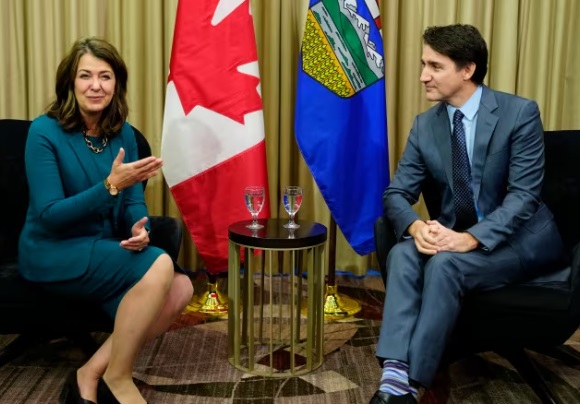
News release from Free Alberta Strategy
Premier Danielle Smith had a message for Ottawa last week.
Keep out.
On Wednesday, the Premier rolled out her latest weapon in the fight against federal intrusions into provincial jurisdiction.
If passed, Bill 18 – the Provincial Priorities Act – aims to align federal funding with provincial priorities, ensuring that said funding reflects Alberta’s interests.
The legislation stipulates that any agreements between the federal government and any provincial entities – including municipalities – must receive provincial approval to be considered valid.
Smith has already given it a nickname: “the stay-out-of-my-backyard bill.”
It’s an apt description of the legislation, especially considering that’s what the federal government has been doing for years – encroaching into Alberta’s jurisdiction.
The legislation shouldn’t come as a surprise to anyone.
We all know that most deals the Alberta government enters into with the federal government don’t work out for Albertans.
We end up paying more in federal taxes than gets spent in federal spending on the programs.
The programs come laden with restrictive conditions that undermine our autonomy, and are often detrimental to our ability to provide the services.
This is especially true with regard to the recent agreement between Ottawa and the provinces that allows the federal government to nationalize childcare.
The childcare agreement has come under heavy criticism due to funding shortfalls in the deal.
It also applies to housing, where despite Alberta accounting for 12% of the national population and experiencing the most rapid population growth, it received a mere 2.5% of the total $1.5 billion in federal housing funding last summer.
Jason Nixon, Minister of Seniors, Community and Social Services, is in charge of housing in Alberta – which is provincial jurisdiction.
On the latest rollout of conditional federal housing handouts, Nixon isn’t buying.
“We will not be bribed, with our own money, to increase the time it takes to get homes built with green energy that makes homes more expensive.”
The theory also applies to the federal government’s latest gambit – doing an end-around provincial negotiations and going directly to municipalities, who seem more interested in taking the money than the conditions attached.
Municipalities are provincial jurisdiction.
Bill 18 mandates that entities within Alberta’s jurisdiction, such as municipalities, universities, school boards, housing agencies, and health authorities, must seek the province’s approval before engaging in, modifying, extending, or renewing agreements with Ottawa.
Agreements between the federal government and provincial entities lacking Alberta’s endorsement will be deemed illegal under this legislation.
That’s Premier Smith’s message.
She’s had enough of it.
“It is not unreasonable for Alberta to demand fairness from Ottawa. They have shown time and again that they will put ideology before practicality, which hurts Alberta families and our economy. We are not going to apologize for continuing to stand up for Albertans so we get the best deal possible.
“Since Ottawa refuses to acknowledge the negative impacts of its overreach, even after losing battles at the Federal and Supreme Courts, we are putting in additional measures to protect our provincial jurisdiction to ensure our province receives our fair share of federal tax dollars and that those dollars are spent on the priorities of Albertans.”
Municipal Affairs Minister Ric McIver had additional thoughts:
“For years, the federal government has been imposing its agenda on Alberta taxpayers through direct funding agreements with cities and other provincial organizations. Not only does Alberta not receive its per capita share of federal taxpayer dollars, the money we do receive is often directed towards initiatives that don’t align with Albertan’s priorities.
“Albertans from all corners of the province expect our federal share of taxes for roads, infrastructure, housing and other priorities – not federal government political pet projects and programs in select communities.”
The Provincial Priorities Act is based on existing provincial legislation in Quebec – called “An Act Respecting the Ministère du Conseil executif” – which prohibits any municipal body from entering into or negotiating an agreement with the federal government or its agencies without express authorization from the Quebec government.
That’s right – the Quebec government has the same rule!
So, this boils down to the same argument we’ve been making for years – if Ottawa wants to step into our backyard, it must first seek Alberta’s approval.
Enough is enough – we won’t stand idly by as our interests are trampled upon.
It’s time for Ottawa to recognize Alberta’s autonomy and respect our right to determine our own future.
At the Free Alberta Strategy, we know that constant vigilance is necessary – for every fence we put up, the federal government tries to find a way around it.
We’ll continue to bring you information about what’s happening in Alberta’s backyard and fighting to keep Ottawa out.
The Free Alberta Strategy Team
-
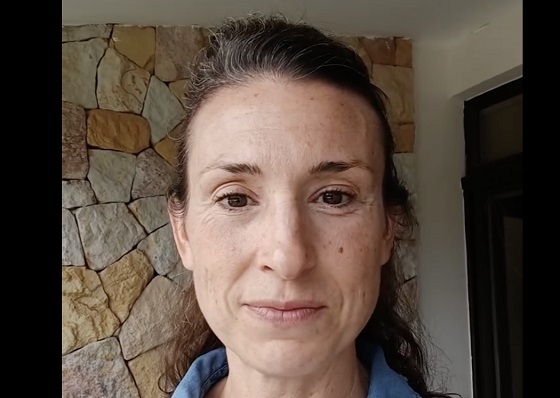
 COVID-192 days ago
COVID-192 days agoPro-freedom Canadian nurse gets two years probation for protesting COVID restrictions
-
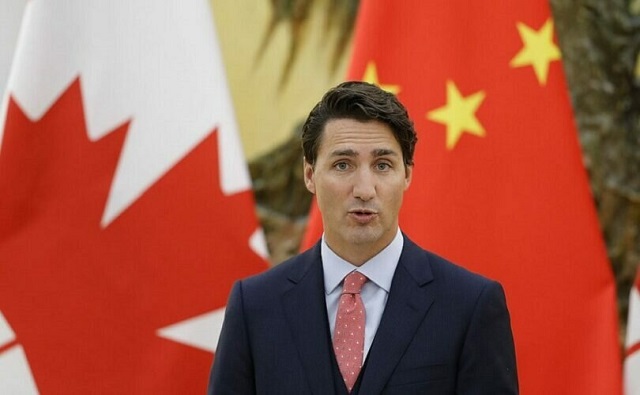
 espionage2 days ago
espionage2 days agoTrudeau’s office was warned that Chinese agents posed ‘existential threat’ to Canada: secret memo
-
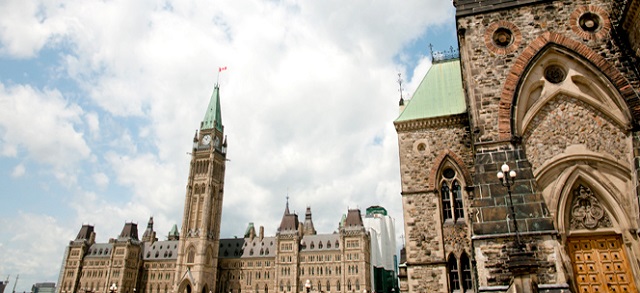
 Economy2 days ago
Economy2 days agoMassive deficits send debt interest charges soaring
-

 Business1 day ago
Business1 day agoBusiness investment key to addressing Canada’s productivity crisis
-

 International1 day ago
International1 day agoBrussels NatCon conference will continue freely after court overturns police barricade
-
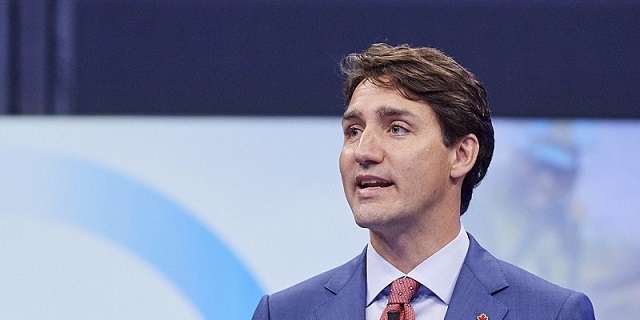
 Business1 day ago
Business1 day agoFederal budget fails to ‘break the glass’ on Canada’s economic growth crisis
-

 Jordan Peterson1 day ago
Jordan Peterson1 day agoJordan Peterson slams CBC for only interviewing pro-LGBT doctors about UK report on child ‘sex changes’
-
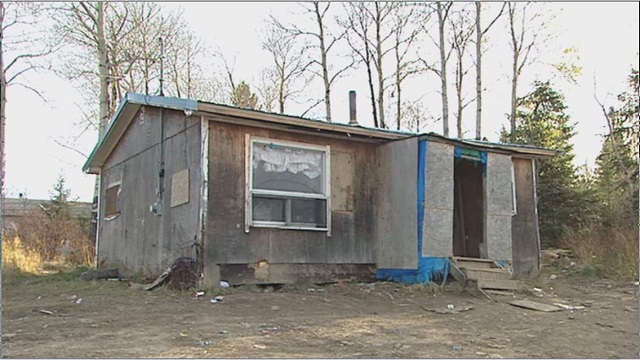
 Frontier Centre for Public Policy1 day ago
Frontier Centre for Public Policy1 day agoThe Smallwood solution



